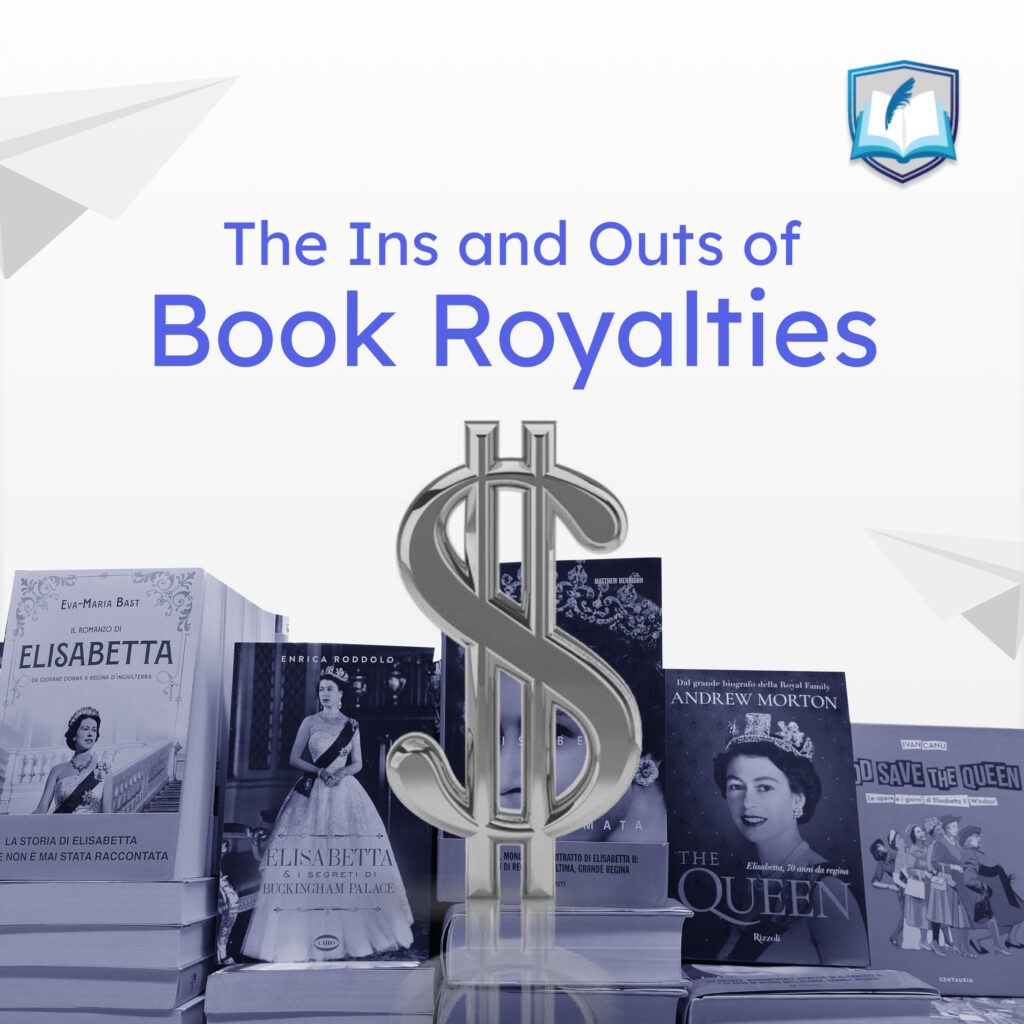Understanding How You Get Paid as a Published Author
Book royalties are the payments that authors receive for their work, and they can be confusing to navigate. But fear not! In this article, we’ll break down the ins and outs of book royalties, so you can understand how you get paid for your hard work. From understanding the different types of royalties to knowing how to negotiate a fair contract, we’ve got you covered. So grab a cup of coffee, sit back, and dive into the fascinating world of book royalties!
Understanding Book Advances
When you sign a book deal with a publisher, you’ll likely receive an advance against your future royalties. An advance is a loan that the publisher gives you upfront based on the expected sales of your book. It’s important to note that the advance is not a guarantee of future earnings but rather an upfront payment you’ll need to earn before receiving royalties.
The amount of your advance will vary depending on several factors, including the genre of your book, your track record as an author, and the perceived commercial potential of your work. Advances can range from a few thousand dollars to millions for high-profile authors.
It’s important to understand that advances are typically paid out in installments. You’ll receive a portion of your advance when you sign your contract, another piece when you deliver your manuscript, and the final part when your book is published. Remember that your advance will be subject to taxes, so set aside a portion for Uncle Sam.
How Book Royalties Work
Once you’ve earned your advance, you’ll start receiving book royalties. Book royalties are typically paid semi-annually, although some publishers may pay them quarterly or annually.
Royalties are calculated as a percentage of the book’s retail price, also known as the list price. The rate can vary depending on several factors, including the book’s format (hardcover, paperback, ebook), the territory where the book is sold, and the sales channel (bookstore, online retailer, direct sales).
It’s important to note that royalties are typically based on the net receipts of the book, which is the amount of money the publisher receives from the book’s sale after deducting any discounts, returns, and other expenses. This means that your royalty percentage will be applied to a smaller amount than the book’s list price.
Factors That Affect Book Royalties
Several factors can impact your book’s royalties, including:
- Sales volume: The more copies your book sells, the more royalties you’ll earn. However, remember that royalties are typically tiered, so you may make a higher percentage once your book reaches certain sales thresholds.
- Retail price: Your royalty percentage is based on the book’s retail price, so a higher price will generally result in higher royalties. However, remember that a higher price may also mean fewer sales.
- Format: Different formats (hardcover, paperback, and ebook) may have different royalty rates, so check your contract.
- Territory: Royalty rates can vary depending on where the book is sold. For example, you may earn a higher royalty rate for books sold in the US than those sold in other countries.
Negotiating Book Royalty Contracts
When negotiating your book contract, it’s essential to understand the different types of royalties and how they work. You’ll also want to pay attention to the royalty rates and any clauses that may impact your royalties (such as tiered royalty rates or return deductions).
It’s also a good idea to negotiate for higher royalty rates, especially if you have a strong track record as an author or your book has significant commercial potential. Remember that publishers expect you to negotiate, so don’t be afraid to ask for your worth.
Tracking and managing book royalties
Once your book is published, keeping track of your book sales and royalties is essential. Many publishers will provide sales reports and royalty statements regularly, but it’s up to you to review them and ensure everything looks accurate.
Several software tools and services can help you track your book sales and royalties, such as BookScan, NovelRank, and K-lyrics. These tools can help you identify trends in your sales and ensure that you’re being paid accurately.
Common Misconceptions About Book Royalties
Authors should be aware of several common misconceptions about book royalties. Here are a few:
- Royalties are guaranteed. As discussed earlier, royalties are not guaranteed and are subject to sales and other factors.
- Royalties are easy money. While earning royalties can be lucrative, it’s important to remember that writing a book is hard work, and success is not guaranteed.
- Royalty rates are set in stone. While publishers may have standard royalty rates, these rates are often negotiable.
Understanding book royalties is essential for any published author. By knowing how royalties work, the different types of royalties, and how to negotiate a fair contract, you can ensure you’re being paid what you’re worth for your hard work.
Remember, publishing is a business, and it’s up to you to understand the business side. By staying informed and proactive, you can ensure your writing career is thriving.




